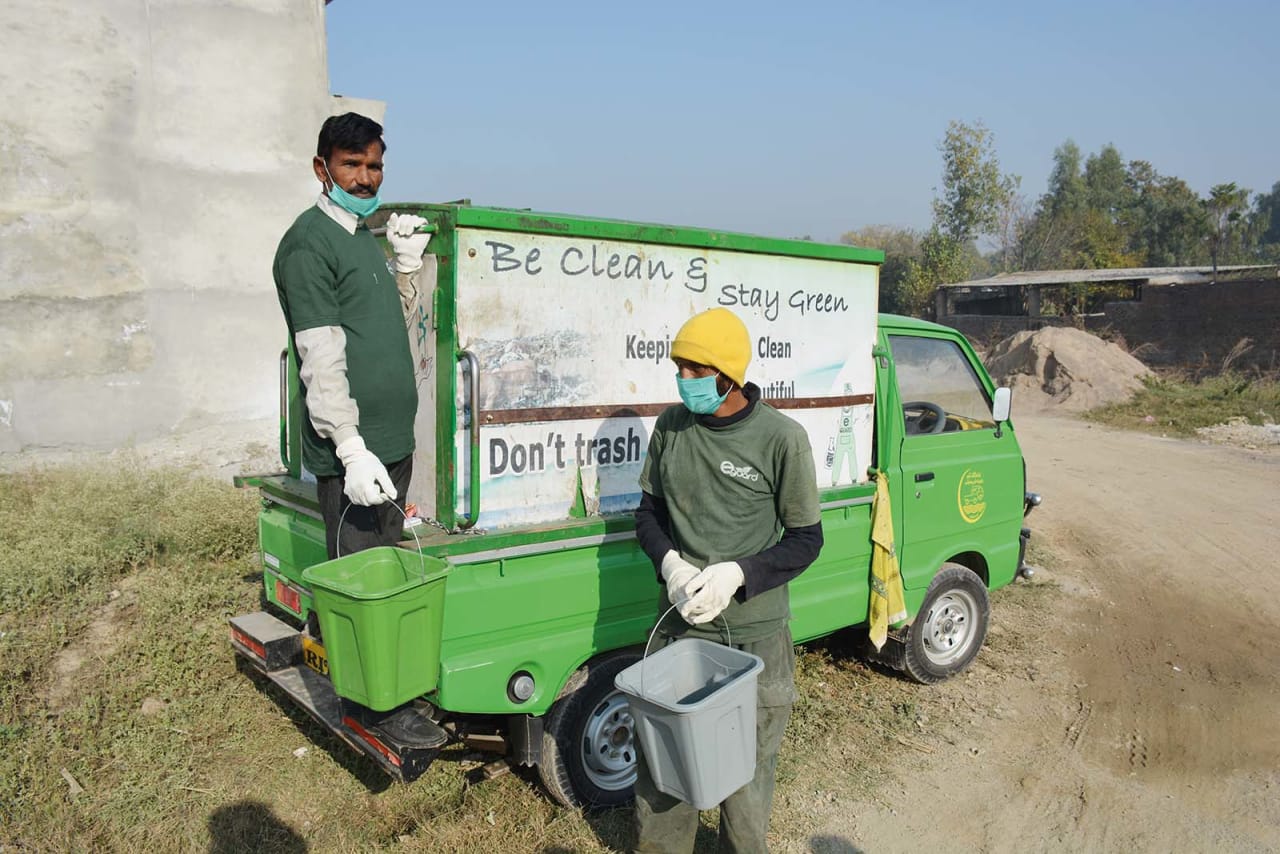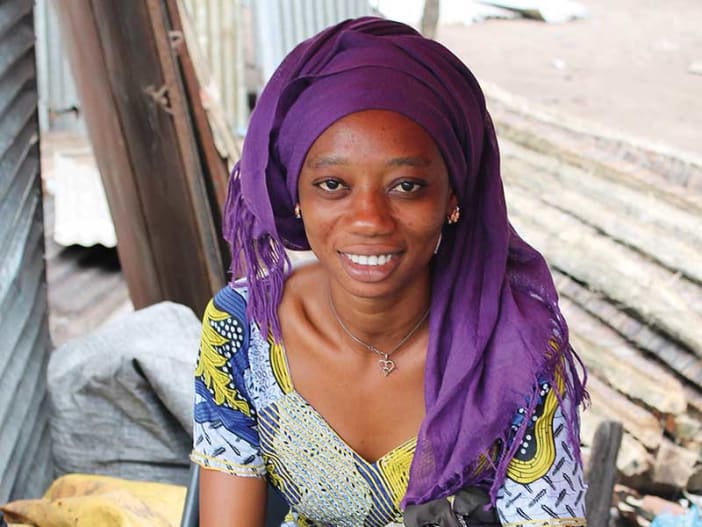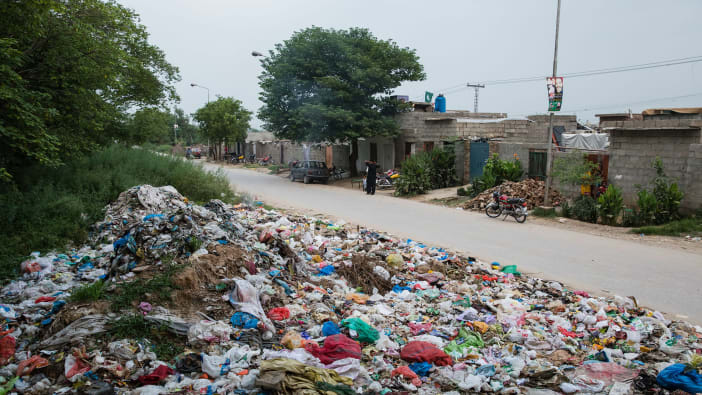Rashid Hameed* is 51 years old and lives in one of the 34 informal settlements in Islamabad, Pakistan. His community has no waste collection service, and rubbish is openly dumped and burned.
Rashid explains: ‘Our slum is located on the bank of a stream, which is full of solid waste and is a breeding place for mosquitoes, flies and rats. These cause diseases in our children and old people, and we spend a great deal of money on their treatment. People living outside the slum discriminate against us because of our unclean environment.’
Rashid’s situation might seem bleak, but a neighbouring area has been transformed through a community recycling and waste management centre.
Resource recovery centres
In this nearby community, the Dr Akhtar Hameed Khan Memorial Trust (AHKMT) introduced a transformative approach to managing waste in 2014.
AHKMT set up an Integrated Resource Recovery Centre (IRRC), which allows 90 per cent of a community’s waste to be recycled. It provides a ‘triple win’ – it creates jobs, improves residents’ health and protects the environment from open burning and dumping.
In this scheme, paid workers collect local households’ waste six days a week. They take it to the centre, where staff sort the waste. They keep the organic waste and use it to make high-quality organic compost, which is sold on to plant nurseries. The plastics, metals and other dry recyclables are sold to a local buyer. Only around 10 per cent of the waste cannot be recycled or composted, and this is disposed of at a municipal landfill.
The centre pays for its activities from the sale of recyclable materials and compost, and by charging a small amount to each household for waste collection (approximately 200 PKR per month, or 2 USD). AHKMT provided the start-up costs for the centre, but by its third year it was able to pay for its own running costs – and make a profit. The IRRC currently serves 1,670 households and processes 1,000 tonnes of waste each year.
Dignified employment
When starting a project such as the IRRC, it is important to make sure no harm is done to those already working informally as waste pickers. Instead, the centre makes sure it employs existing local waste pickers among its staff, providing them with safer and better-paid employment. The centre calls their waste workers ‘E-guards’ (Environment guards) and supplies them with a protective uniform, giving them dignity and respect in the community.
Faraz Karim* is 45 years old and has been working at the IRRC for the past three years. His job is to separate organic, recyclable and rejected waste. He earns 14,000 rupees per month (approximately 113 USD) from the IRRC, and also gets health benefits through Social Security.
Before, he worked as a house servant and earned much less. He says: ‘After joining the IRRC, my life has changed completely. My financial situation has improved, and I have learnt health and hygiene practices that have improved my health and the health of my family. I have gained knowledge of solid waste management, composting and recycling, which is very useful for me and my community. I am happy and satisfied as I am playing a productive role in society.’
Scaling up
The IRRC model was first used in Bangladesh in 2007 by the NGO Waste Concern. Since then, it has been introduced successfully in a number of East Asian countries. IRRCs are an effective solution in circumstances where the government does not have the capacity to provide waste disposal services.
Tearfund’s partner Pak Mission Society (PMS) is adapting the IRRC model to serve poor communities. PMS started one IRRC in Pakistan in 2018 and plans to introduce the model much more widely during 2019.
*Names have been changed to protect identities.
To find out more about Tearfund’s work on IRRCs in Pakistan, email Richard Gower on [email protected]









